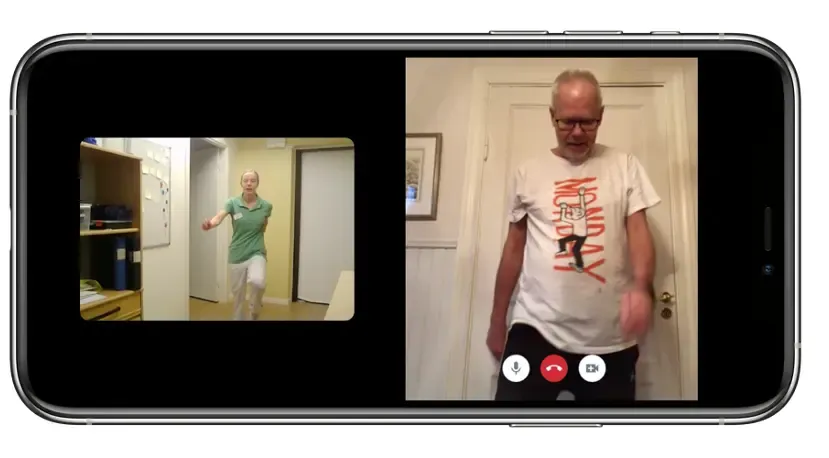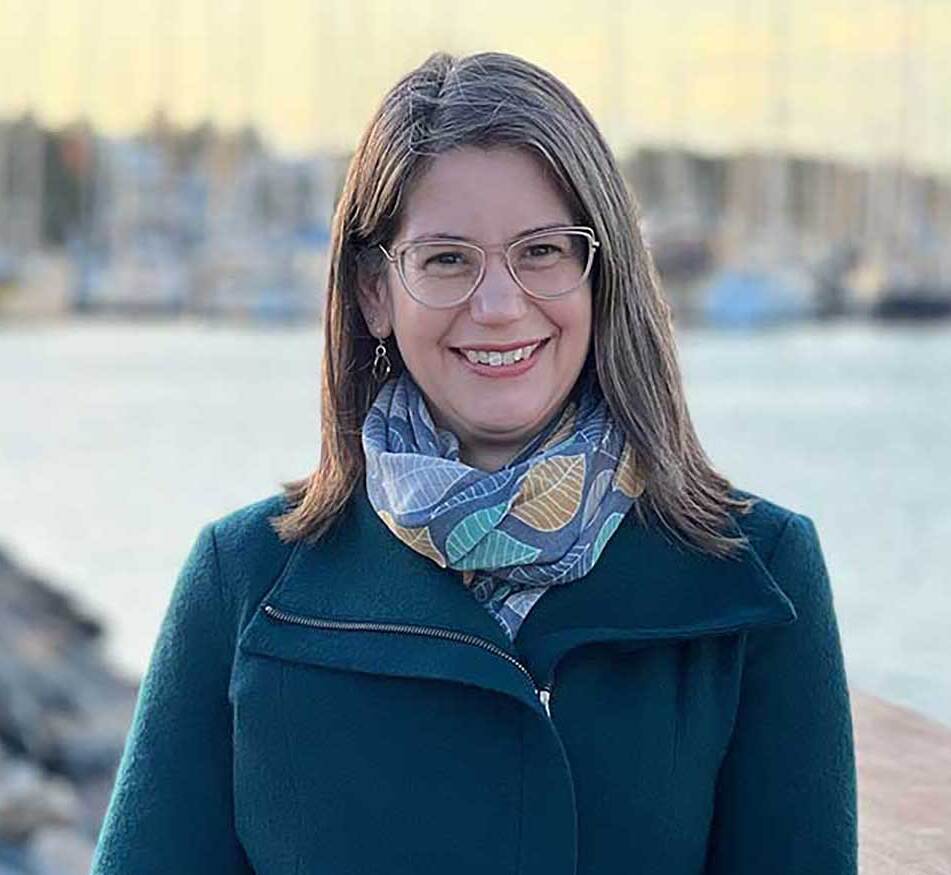mHealth delivered physical activity after stroke or transient ischemic attack – development and feasibility
The overall aim is to develop and test the feasibility, acceptability, and preliminary effects of mobile health (mHealth) delivered physical activity among individuals post-stroke or transient ischemic attack (TIA). The development is carried out in collaboration with individuals who have experienced stroke or TIA, physiotherapists, patient organizations, and the MedTech industry.

About the Project
This project builds on research initiated by our Australian collaborators, who developed i-REBOUND – Let’s Get Moving, a telehealth intervention designed to support physical activity among individuals post-stroke. We adapted and tested a mHealth version of the program to increase accessibility and uptake of physical activity support across diverse settings in Sweden. The project has been carried out in three phases:
Phase 1
In collaboration with people post stroke/TIA, physiotherapists and the MedTech industry, we developed a Swedish mHealth version of the i-REBOUND program. The development consisted of an iterative process including prototype development, end-users workshops for feedback and prototype adaptation. This work led to the creation of STAAR (Stroke Treatment through Active and Accessible Rehabilitation), a fully digital intervention delivered via a mobile application.
Phase 2
We evaluated the feasibility and acceptability of the mHealth intervention among 114 individuals post-stroke or TIA across Sweden. The study included both quantitative assessments—focusing on implementation factors such as adherence, engagement, and process delivery—and qualitative interviews with participants and physiotherapists. The results supported the intervention’s feasibility in terms of reach, safety, and acceptance, while also identifying areas for improvement, such as personalized tailoring, engagement among socioeconomically diverse populations, and support for sustained self-management of physical activity.
Phase 3
Guided by insights from Phase 2, we are conducting a series of co-production studies to refine and enhance the mHealth intervention. Key areas of development include:
- Expanding mHealth support for physical exercise to improve accessibility for individuals with more pronounced balance and motor impairments.
- Strengthening self-management components to better support behavior change, motivation, and resilience.
- Re-designing the intervention to enhance individulization to address diverse support needs.
Significance
Staying physically active after a stroke or TIA can reduce the risk of disability and another stroke by nearly half. Despite these benefits, many people do not receive the support for exericse or physcial activity—especially those living in rural areas.
To address this challenge, this project has contributed to the development of an mHealth intervention that provides tailored support through a smartphone app. It is designed to help individuals build and maintain active habits, with digital guidance from a physiotherapist—no matter where they live.
By working closely with stroke survivors, physiotherapists, and MedTech experts, we have created a digital intervention responsive to diverse support needs. The refined intervention will be tested for efficacy and cost-effectiveness in a multicenter study starting in 2026.
Seminar on digital physiotherapy after stroke
In this two-part seminar, we present our research on digital physiotherapy as a way to support increased physical activity among people who have experienced a stroke.
We highlight why physical activity is so important after a stroke, share results from our study in which we developed and evaluated digital support for exercise and physical activity, and provide an outlook on our future research plans. Please note that the seminar is held in Swedish.
Principal Investigator
David Moulaee Conradsson
Senior LecturerProject group
Sophia Monica Humphries
Postdoctoral ResearcherCharlotte Thurston
Phd StudentHanna Lagerlund
Phd StudentLucian Bezuidenhout
Assistant ProfessorSverker Johansson
Senior Lecturer/Physcial TherapistLisa Holmlund (f.d Bergmark)
Assistant ProfessorLena von Koch
Professor, Senior
Coralie English
Professor, University of Newcastle, Australia, School of Health SciencesPublications
Mobile health delivered physical activity after mild stroke or transient ischemic attack: Is it feasible and acceptable?
Thurston C, Humphries S, Bezuidenhout L, Johansson S, Holmlund L, von Koch L, English C, Moulaee Conradsson D
Int J Stroke 2025 Jan;():17474930251315628
Mobile health to promote physical activity in people post stroke or transient ischemic attack - study protocol for a feasibility randomised controlled trial.
Thurston C, Bezuidenhout L, Humphries S, Johansson S, von Koch L, Häger CK, Holmlund L, Sundberg CJ, Garcia-Ptacek S, Kwak L, Nilsson M, English C, Conradsson DM
BMC Neurol 2023 Mar;23(1):124
Physical activity and influencing factors in people post stroke or transient ischemic attack across diverse regions in Sweden.
Bezuidenhout L, Humphries S, Moulaee Conradsson D
Front Neurol 2024 ;15():1463162
Telerehabilitation during the COVID-19 pandemic in Sweden: a survey of use and perceptions among physiotherapists treating people with neurological diseases or older adults.
Bezuidenhout L, Joseph C, Thurston C, Rhoda A, English C, Conradsson DM
BMC Health Serv Res 2022 Apr;22(1):555
Factors associated with the willingness to provide telerehabilitation by physiotherapists treating older adults or people with neurological diseases during the COVID-19 pandemic in Sweden.
Humphries S, Bezuidenhout L, Häger CK, Moulaee Conradsson D
PLOS Digit Health 2024 Jul;3(7):e0000563
